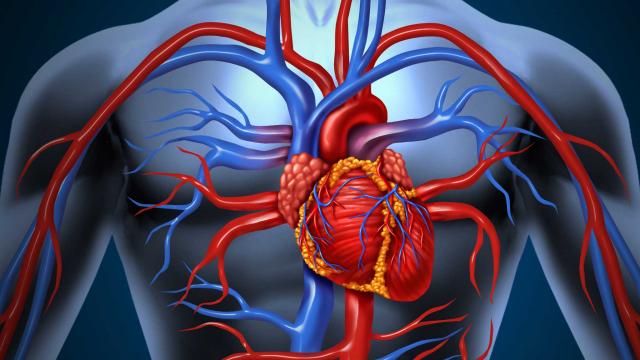Prevention the best medicine for congestive heart failure
Few phrases elicit as much fear at diagnosis as “heart failure,” and Dr. Brendan Carry, Geisinger cardiologist admitted that the condition can definitely be serious.
“There are about six million people in the country who have heart failure,” he said. “From time of initial diagnosis, the patient currently only has about a 50 percent chance of survival at five years.”
But that doesn’t mean a diagnosis of congestive heart failure is an automatic death sentence, according to Dr. John Pfeifer, interventional cardiologist at the Heart and Vascular Center of Evangelical.
“Heart failure is a scary term, and when I discuss it with patients, I definitely can see that deer-in-a-headlights look,” he said. “However, treatment has come a long way, and heart failure can run the full gamut. A lot of the time, we can make the situation better if the patient is willing to make some lifestyle changes to go with our treatment options.”
What it is
Congestive heart failure comes with a group of symptoms that generally include fatigue, shortness of breath, decreased exercise tolerance and swelling in the feet and ankles, according to UPMC Susquehanna cardiologist Dr. Donald Nardone.
“If you have these symptoms, you may certainly be further along the continuum of heart disease,” he said before adding that there are two broad categories of heart failure.
“One type, called systolic by some, involves when the heart doesn’t pump enough blood out — we look at the ejection fraction, and when a heart is pumping out at least 50 percent of the blood in the left ventricle, it is considered normal,” Nardone said.
“If the heart is pumping out less, especially 40 percent or less, we consider it an issue of poor pumping in the heart.”
The second category — considered diastolic according to Nardone — involves the heart not filling up with enough blood.
“This version can be much more complex to nail down and can be related to a variety of issues through the body,” said Carry. “There can be a stiffness to the heart itself, damage to the blood vessels, problems with the metabolism of the muscles or other issue.”
The congestive part of heart failure involves the body’s natural response to counteract the blood flow issue by filling up with excess fluids, according to Carry.
“The heart changes and ultimately the kidneys don’t feel like they are getting enough blood flow, so they send hormones up that ultimately leads to excess fluid through the body that can lead to swelling, edema and extra fluid in the lungs which affects breathing,” he said. “Patients complain of being short of breath, they can’t lay on their backs and may even feel they are drowning in their own fluid.”
Potential causes
According to Pfeifer, one of the main triggers of congestive heart failure can be a heart attack stemming from coronary artery disease, although not everyone who has a heart attack develops heart failure.
“It can also come from a problem with the heart valve which can become excessively tight or be leaking,” he said. “One of the biggest causes of heart failure in the past — especially in the 1940s and 50s — was hypertension. However, we’ve come a long way in helping people regulate their blood pressure so it isn’t as big of a cause as it once was.”
Carry added that things like drinking alcohol, smoking and even a viral infection can trigger heart failure.
“We’ve found that infections can definitely be an issue — in many of those cases, the infection itself may be long gone by the time we see the heart failure, but the scar tissue of the body’s reaction to the infection lingers,” he said.
Diabetes is also closely connected to heart failure, according to Pfeifer.
“A lot of the issue with diabetes is that it can lead to coronary disease which leads to heart attacks and ultimately heart failure,” he said. “There are a lot of new treatments for diabetes that can help, but the goal is to focus on the sugar consumption and keep that in check as well as possible.”
Nardone added that sleep apnea can have a direct connection to heart failure issues, as well.
Prevention is best treatment
Treatment options vary widely based on the individual’s type of heart failure and underlying issues. Medications (such as beta blockers and ACE inhibitors), surgery, heart pumps and even devices such as pacemakers can help offset some of the symptoms of the condition.
However, prevention is the best form of treatment and better regulating what has caused your body to develop heart failure.
“Making lifestyle changes is important. If you smoke, stop. Get regular exercise — even if it is just a short walk each day,” said Nardone. “Obesity can be an underlying issue with much of this, so getting your weight in check is key. That goes back to eating a healthier diet with more fruits and vegetables and less processed foods is important.”
One of the biggest reasons processed food is not good, Nardone said, is the increased sodium content.
“Salt is definitely something to reduce when dealing with heart failure — including fluids released in the body,” he said.
‘The best way to make sure you don’t develop coronary disease is to maintain a healthy body weight, decrease sugar intake if you are diabetic and live as healthy a lifestyle as possible,” Carry said. “Especially if your family has a history of coronary disease, diabetes or heart failure.”

